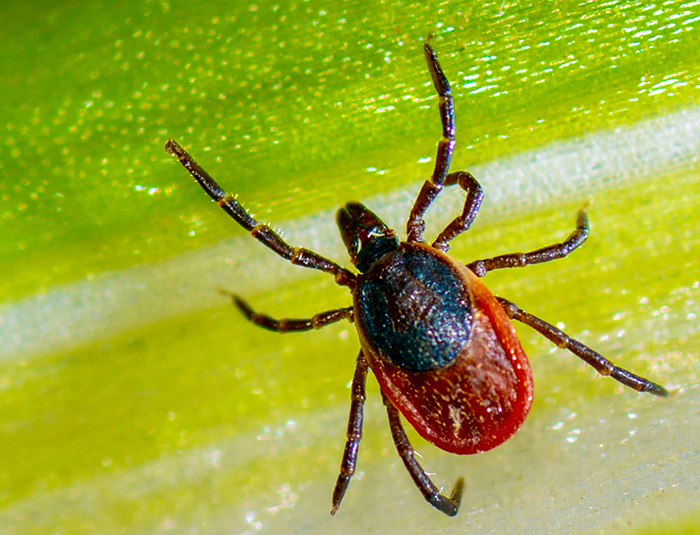
CK Public Health keeping a sharp eye out for disease-carrying insects
Mosquitoes and ticks are in the crosshairs of CK Public Health.
The organization has announced new initiatives aimed at reducing the risk of people getting sick from mosquito and tick bites.
This comes on the heels of a board of health meeting June 17 where Public Health officials spoke at length about blacklegged ticks in particular.
Melissa Harrigan, a West Kent municipal councillor and member of the board of health, said 2024 is proving to be a bad year for ticks.
“I feel I, and other rural residents, feel this is a bad year for ticks. I pulled 11 off my own pet the other day and had to pick five or six off my family’s clothing after we went for a walk,” she said.
Cara Robinson, manager of environmental health, said the most common tick seen around Chatham-Kent is the American dog tick. It does not carry Lyme Disease.
However, the blacklegged ticks do. In fact, acting medical officer of health Dr. Shanker Nesurathai said they carry more than that.
“There are other diseases they can transmit. They include anaplasmosis, babesiosis and Powassan virus,” he said.
Anaplasmosis and babesiosis can cause flu-like symptoms. Nesurathai said that on occasion, both can be lethal.
As for the Powassan virus, it can be debilitating, if not deadly.
“What is particularly awful is it causes encephalitis – swelling of the brain,” Nesurathai said. “Even if you recover from the virus, a good number of people have permanent disabilities.”
CK Public Health staff will also help residents identify what type of tick they’re dealing with. Robinson said people bring in ticks for identification on a regular basis, adding there is information on the CK Public Health website at ckphu.com.
Robinson and Nesurathai said the warming climate has been a contributor to the spread of blacklegged ticks throughout parts of southern Ontario, and the increase in populations.
“With warming temperatures trends and climate change, we’re seeing more active tick activity. It was a mild winter last year,” Robinson said. “Ticks remain active throughout the winter and get more and more active in the spring.”
Nesurathai said the public can help minimize their chances of getting a tick-borne illness.
“Wear long pants and long sleeves. And when you come indoors, check yourself over and remove any ticks,” he said. “We want people to enjoy the great outdoors but take reasonable precautions.”
For anyone who suffers from such an illness, he added early identification is the goal. Nesurathai said patients going to their primary health-care provider and explaining their concerns is an important step.
Starting this season, West Nile virus mosquito surveillance data will be available through an online report that will be updated weekly with mosquito identification and testing results from June through to September.
The additional public transparency provided by online reporting allows residents to stay informed about West Nile Virus.
The public can view the bulletin at ckpublichealth.com/thegreatoutdoors. CK Public Health will continue to issue media releases for the first positive mosquitoes found at each trap site in a season.






